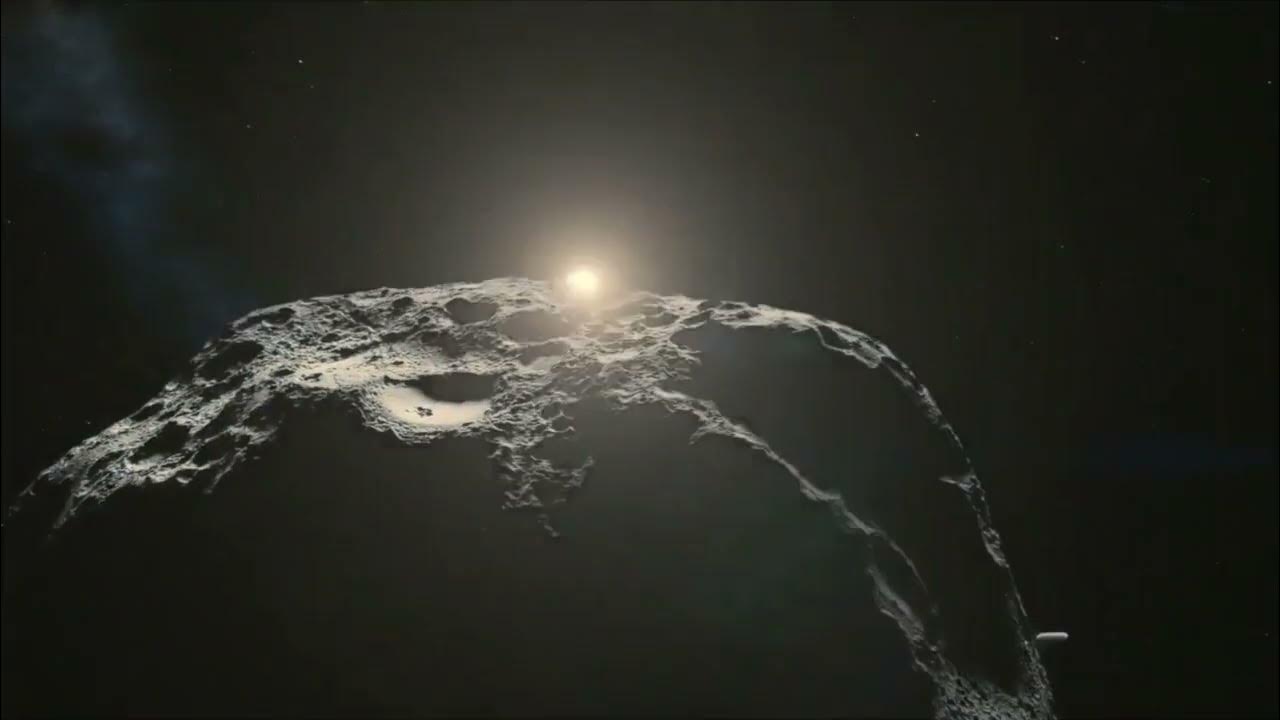Planetang katulad ng Earth, puwede raw tirhan?! | AHA!
Summary
TLDRThis engaging video takes viewers on a fascinating journey through the Solar System, highlighting key planets like Venus, Jupiter, and the recently discovered Gliese 12b, which could potentially support life. From Venus' extreme heat to Jupiter’s massive size and gravity, the video reveals how these planets compare to Earth. It also touches on Pluto’s status as a dwarf planet and explores the unique conditions that make Earth the only known planet capable of sustaining life. Perfect for space enthusiasts, this educational yet entertaining video offers a mix of scientific insights and curiosity-driven fun.
Takeaways
- 😀 Earth is not the hottest planet in the Solar System, Venus holds that title due to its thick atmosphere.
- 🌍 Venus has an atmosphere 100 times thicker than Earth’s, trapping heat and raising surface temperatures to 875°F (460°C).
- 🌧️ It rains acid on Venus, a unique and harsh phenomenon due to its extreme temperatures.
- 🪐 Jupiter, the largest planet in the Solar System, plays a crucial role in protecting Earth by diverting comets and asteroids with its massive size and strong gravity.
- 🌑 Jupiter’s largest moon is bigger than Mercury and Pluto, and its gravity is the strongest in the Solar System.
- 🌌 Jupiter’s gravity helps keep the Solar System clean by attracting and absorbing dangerous comets and asteroids.
- 🌟 A new planet, Gliese 12b, was recently discovered and is being studied as a potential candidate for supporting life due to its Earth-like properties.
- 🌍 Gliese 12b is slightly smaller than Earth and has a temperature of 50°F, making it potentially habitable compared to other planets.
- 🚀 Despite its Earth-like characteristics, Gliese 12b is incredibly far away, and it would take tens of thousands of years to reach with current technology.
- 💫 Earth remains unique in the Solar System for supporting life, with the ability to sustain biological processes, including writing, which no other planet can claim.
Q & A
What is the hottest planet in the Solar System?
-Despite being the closest planet to the Sun, Mercury is not the hottest. Venus holds the title of the hottest planet due to its thick atmosphere, which traps heat. The surface temperature on Venus can reach 875°F (460°C).
Why is Venus hotter than Mercury, even though it is farther from the Sun?
-Venus is hotter than Mercury because its atmosphere is 100 times thicker than Earth's, trapping heat through a strong greenhouse effect. This thick atmosphere consists of carbon dioxide, which prevents heat from escaping into space.
What happens when it rains on Venus?
-On Venus, it doesn't rain water, but sulfuric acid. The planet’s extreme heat causes these acid rains, which are a result of the sulfur dioxide in Venus’s atmosphere interacting with the planet’s surface.
What role does Jupiter play in protecting Earth?
-Jupiter acts as a cosmic protector by using its immense gravity to attract and absorb comets and asteroids that might otherwise collide with Earth. This protective role helps shield our planet from potential catastrophic impacts.
What is the largest moon in the Solar System?
-The largest moon in the Solar System is Ganymede, which orbits Jupiter. Ganymede is even larger than the planet Mercury and is the biggest moon by size and mass.
Why is Jupiter’s gravity so strong?
-Jupiter's gravity is incredibly strong due to its massive size. It is the largest planet in the Solar System, and its gravitational pull is about 2.5 times stronger than Earth's, allowing it to attract large objects like comets and asteroids.
What is Gliese 12b, and why is it significant?
-Gliese 12b is a recently discovered exoplanet that is slightly smaller than Earth. It has an average temperature of about 50°F (10°C), making it potentially habitable. Its location in the habitable zone of its star suggests it could have conditions suitable for life, such as an atmosphere or water.
How long would it take to reach Gliese 12b with current technology?
-With the fastest spacecraft available today, it would take tens of thousands of years to reach Gliese 12b due to its vast distance from Earth.
Why is Earth considered unique in the Solar System?
-Earth is considered unique because it is the only known planet that can support life as we know it. Unlike other planets, Earth has a breathable atmosphere, liquid water, and the right temperature range for sustaining life.
What makes Earth the best planet for humans to live on?
-Earth is the best planet for humans due to its ideal conditions, including a breathable atmosphere, liquid water, moderate temperatures, and a stable environment, making it the only known planet capable of supporting life.
Outlines

This section is available to paid users only. Please upgrade to access this part.
Upgrade NowMindmap

This section is available to paid users only. Please upgrade to access this part.
Upgrade NowKeywords

This section is available to paid users only. Please upgrade to access this part.
Upgrade NowHighlights

This section is available to paid users only. Please upgrade to access this part.
Upgrade NowTranscripts

This section is available to paid users only. Please upgrade to access this part.
Upgrade NowBrowse More Related Video

Planet-Planet di Tata Surya, Ditinjau dari Dalam

PLANET TATA SURYA DAN KETERANGANNYA

Planet-Planet di Tata Surya: Keunikan & Karakteristiknya🌎✨

The Planets in order from the sun- Plus interesting Planet facts

Cosmos A Spacetime Odyssey episode 1 part2

BAB 7 Bumi dan Tata Surya || Delapan Planet dalam Tata Surya - IPA Kelas 7 Kurikulum Merdeka
5.0 / 5 (0 votes)